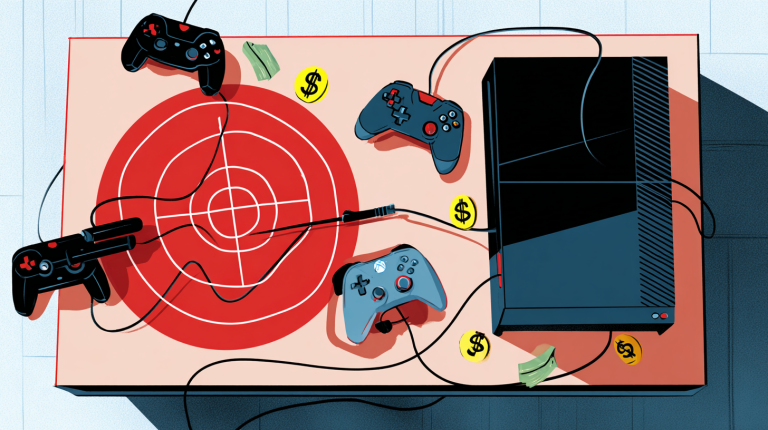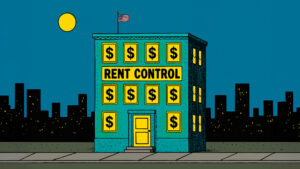Mexico’s proposed 8% tax on violent video games.
The Mexican federal government has announced a new 8% excise tax on violent video games. The justification? That violent games are responsible for violent behavior.
Violence is indeed a heavy problem in Mexico, and organized crime has left significant parts of the country in a state of terror. But attacking video games seems a poor policy-choice that echoes the moral panics of the 1990s—when games like Mortal Kombat triggered congressional hearings and headlines about the corruption of the youth that led to the creation of the ESRB system. Such panics gain political traction even when evidence is lacking.
To support the claim that video games inspire violence, the government cited only a single academic article—no broad review of the research, no comparison of diverse findings, and no solid data.
This lack of rigor matters. When a government intervenes in markets, the burden of proof must rest squarely on its shoulders. By failing to substantiate its claims, the Mexican state undermines the legitimacy of its proposal.
Freedom requires institutions that protect property rights and ensure that voluntary exchanges are not restricted arbitrarily by the state. When the government wishes to intrude on these exchanges, it must show that doing so is not only justified but necessary. It is insufficient to declare that an activity might generate bad side effects. The government must prove that, in the absence of intervention, third parties would be gravely harmed. The burden of proof falls on the state, not the citizen. In the case of the violent video game tax, the Mexican government falls far short of this standard.
The rationale used by the government illustrates the idea of a Pigouvian tax. An economic concept named after economist Arthur C. Pigou, the idea is that when private activities generate negative externalities—costs that spill over onto others—the state can impose a tax to reflect these costs. If violent games really do foster aggression or social harm, this is a cost to society, and a corrective tax could, in theory, make sense.
But the government would first need to prove the following:
- Do violent video games in fact generate measurable negative externalities?
- Even if they do, has the government shown that an 8% tax is the correct tool and rate to offset them?
The answer to both questions is NO.
Even if one accepts that violent video games cause some level of social harm, the Mexican government has not shown that its proposed 8% tax is a fair assessment. The tax claims to be corrective, but it is just revenue-oriented and symbolic.
The literature on violent games and violence is divided and nuanced. It is important to distinguish between aggression—often measured in laboratory tasks or surveys—and actual violent crime. Many studies show small increases in short-term aggression after playing violent games, but evidence linking them to criminal violence is lacking.
Anyone searching for evidence that violent video games fuel aggression will find studies to lean on. The 2010 meta-analysis by Anderson and colleagues linked violent games to increases in aggressive thoughts and less empathy. Similarly, Matt DeLisi’s 2013 work on incarcerated youth found correlations between violent gameplay and delinquency, hinting that in already high-risk populations, games might add yet another nudge toward antisocial behavior.
But there is a crucial difference between experiencing aggressive feelings and the commission of violent crimes. Studies that seek to uncover a causal link between explicit criminal violence and video games come up empty. Christopher Ferguson, in a body of work spanning from 2007 to 2019, found that once you correct for publication bias—journals favoring studies that report significant effects, the supposed connection largely vanishes. And some economists have found an opposite pattern. In a 2016 study using US crime data, Cunningham and colleagues found that in weeks with higher violent game sales, violent crime rates actually dipped slightly. Time spent playing games keeps some people away from riskier activities. And more recently, a large-scale study by Przybylski and Weinstein (2019), in a preregistered investigation in the United Kingdom, reported no link between violent gameplay and adolescent aggression.
So yes, violent games may stir emotions or spark brief flashes of aggression, but they don’t seem to turn players into violent offenders. If anything, the evidence suggests they might even keep people away from crime. On Pigouvian grounds, that wouldn’t justify a tax at all. It would call for subsidies!
Mexico has over 72.6 million gamers and a gaming market worth $2.6 billion annually. Between 2015 and 2024, the number of households with consoles rose from 3.6 million to 8.1 million, an increase of 125%. Gaming is a booming industry, creating jobs, attracting investment, and fostering innovation.
Analysts at GameMetron—a Mexican Legaltech firm specializing in the video game and esports industry— estimate that a title priced at MX$100 would cost MX$124 after the new tax. Consumers who value the game at above MX$100 but below MX$124 will no longer purchase it. These foregone transactions mean that consumers lose enjoyment, firms lose sales, and the government gains nothing from the missed tax revenue.
Developers and publishers may reduce investment or delay releases in Mexico, perceiving the market as less profitable. Smaller domestic studios, already operating on thin margins, may find themselves particularly disadvantaged. The tax may paradoxically reduce VAT revenues, as lower sales volume negate gains from the surcharge.
The violent video game tax fails on both the scientific and economic fronts. It is not backed by solid evidence of harm, nor is it calibrated as a Pigouvian correction. It risks damaging a dynamic industry, raising consumer prices, and distorting incentives, all while offering negligible social benefit. More importantly, it erodes the principle that government interventions in free markets must be justified with strong evidence. To impose an arbitrary tax on a cultural and technological sector based on weak correlations is to substitute prejudice for analysis.





